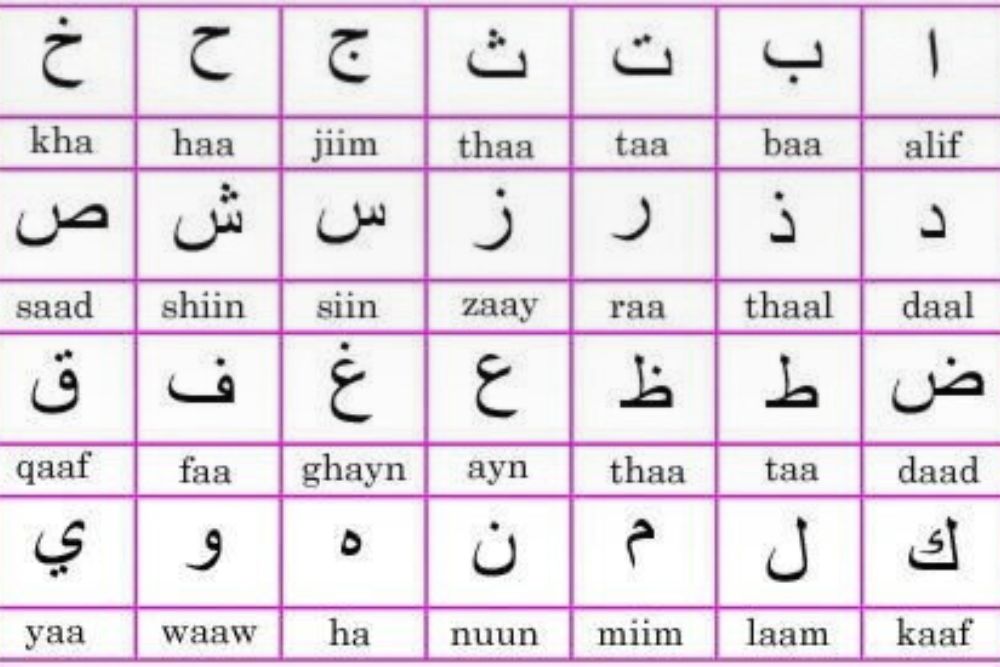Hello, and welcome to our guide on How to Learn Quranic Arabic. Arabic is the language of the Qur’an, and for Muslims, it is essential to learn this language to read and understand the holy book in the best possible way. In this article, we’ll explore the best ways to Learn Quranic Arabic, including tips for reading, writing, and speaking the language.
We’ll also discuss how to find native Arabic tutors who can help you achieve your goals. Whether you’re a beginner or an advanced learner, this guide will provide you with the tools you need to master Quranic Arabic and deepen your understanding of the word of Allah.
Arabic Basics Made Simple
Arabic is a beautiful and complex language, but it can be intimidating to learn. In this section, we’ll cover some basic concepts that will help you get started.
Is it easy to How to Learn Quranic Arabic?
Learning Quranic Arabic can be challenging, but it’s also rewarding. The language has unique characteristics that make it different from other languages. However, with consistent effort and dedication, you can achieve proficiency within a few years.
Begin with Alphabet Mastery
The Arabic alphabet consists of 28 letters, and each letter has a unique shape and sound. Start by learning the names and shapes of each letter. You can use flashcards or online resources to help you memorize the alphabet.
The alphabet in the Arabic language was arranged by the grammarian Nasr bin Asim Al-Laithi and was assigned by Al-Hajjaj bin Yusuf Al-Thaqafi and was named in alphabetical order to distinguish it from the alphabetical order, which is as follows: أ – ب – ت – ث – ج – ح – خ – د – ذ – ر – ز – س – ش – ص – ض – ط – ظ – ع – غ – ف – ق – ك – ل – م – ن – ه – و – ي

Once you’ve mastered the alphabet, practice writing each letter. Pay attention to the direction of the strokes and the placement of the dots and diacritical marks.
Finally, practice reading simple words and phrases. Start with short words and work your way up to longer sentences. You can find practice materials on Arabic Course For Beginners or in textbooks.
Grammar Essentials for Quranic Study
Arabic grammar is complex in the quranic, but it’s essential for understanding the Quran. In this section, we’ll cover some of the most important grammar concepts you need to know.
It is necessary to learn to read the Quran and memorize it, that learning be by receiving at the hands of a trustworthy teacher, who teaches you the principles and rules of reading, hears your reading and corrects your mistakes so that your reading becomes sound and without mistakes. Because in reading the Quran, the provisions of the tide, endowment, singing and many things we do not use in our reading of the Arabic language these days.
Don’t worry, we will be with you on your journey to learn Arabic and grammar to know how to learn Arabic from beginning to finish
How to learn Arabic for Quran fast?
There are many resources available online that can help you learn Arabic quickly. Some tips include learning Arabic vocabulary, studying the Quran with the Arabic language, creating or following an Arabic study schedule, and immersing yourself with the Quran.
Essentials for Quranic Study To begin Learning Tajweed, we start with the Four Fundamentals which are:
Tafkheem (Emphasis):
The proper pronunciation and emphasis on letters.
Ghunnah (Nasalization):
Applying nasal sound when required in specific letters.
Qalqala (Vibration):
The slight vibration of certain letters when pronounced.
Madd (Prolongation):
Correctly extending the duration of certain letters.
What do we mean by Essentials of Tajweed?
These are the pillars of accurate reading. If there is any deviation or error in these fundamentals, it affects the recitation. Mastering them ensures a flawless recitation. They form the foundation for the melodious recitation of the Quran, the correction of recitation, and the analysis of verses.
What is the meaning of Analyzing Verses?
Tajweed analysis involves assigning the proper rulings to each letter in the Quran.
How do we start Correcting Recitation?
We start with the Four Fundamentals. Once these are mastered, we progress to other aspects that complement recitation. It is crucial to understand that proficiency in these fundamentals makes it easier for the reciter to master the remaining rules effortlessly.
The Four Fundamentals of Tajweed are indispensable during reading, correction, and analysis, whether for beginners or experts. We never compromise on these fundamentals in our recitation, correction, or analysis of verses.
Daily Sentence Construction
One of the best ways to learn Arabic grammar is to practice constructing sentences every day. Start with simple sentences and work your way up to more complex ones. Use your knowledge of the Arabic alphabet and basic vocabulary to create sentences that make sense.
As you practice, pay attention to the different parts of speech, such as nouns, verbs, and adjectives. Learn how to use them correctly in a sentence, and how to change their form to match the gender and number of the subject.
Finally, practice reading and analyzing Quranic verses. Look for examples of the grammar concepts you’ve learned, and try to identify the different parts of speech. This will help you deepen your understanding of the language and the Quran.
Building Vocabulary Through Quranic Verses
One of the most effective ways to build your Quranic Arabic vocabulary is by reading and analyzing Quranic verses. In this section, we’ll explore some practical tips for building your vocabulary through Quranic verses.
Create Quranic Flashcards
Create flashcards with Quranic words and their meanings. You can use online tools like Quizlet or Anki to create digital flashcards, or you can make physical flashcards using index cards.
Write the Arabic word on one side of the card and its English meaning on the other side. Review the flashcards regularly to reinforce your memory.
Read Quranic Verses Daily
Read Quranic verses daily to expose yourself to new words and phrases. Start with short verses and work your way up to longer ones. Pay attention to the context in which the words are used and try to infer their meanings.
As you read, make note of new words and add them to your flashcards. This will help you build your vocabulary gradually over time. This is one of the secrets to start your way in how to learn quranic arabic.
Use Quranic Vocabulary Lists
Use Quranic vocabulary lists to expand your vocabulary. There are many resources available online that provide lists of common Quranic words and their meanings.
Start with basic lists and work your way up to more advanced ones. As you learn new words, add them to your flashcards and practice using them in sentences.
Perfecting Pronunciation with Tajweed
Tajweed is the art of reciting the Quran in a melodious and beautiful manner. In this section, we’ll cover some practical tips for perfecting your pronunciation with Tajweed.
Record and Review
Record yourself reciting Quranic verses and listen to the recording. Pay attention to your pronunciation and try to identify areas where you need improvement.
Listen to recordings of professional reciters and compare your pronunciation to theirs. This will help you identify areas where you need to improve and give you a better understanding of the melody and rhythm of the Quran.
Take a Tajweed Course
Consider taking a Tajweed course to improve your pronunciation. There are many online courses available that can help you learn the rules of Tajweed and practice reciting Quranic verses.
Look for courses that are taught by qualified instructors and that provide plenty of opportunities for practice and feedback. And here we have the best teachers of how to learn Quranic Arabic
Practice Regularly
Practice reciting Quranic verses regularly to improve your pronunciation. Start with short verses and work your way up to longer ones.
As you practice, pay attention to the melody and rhythm of the Quran. Try to recite the verses in a melodious and beautiful manner, and focus on perfecting your pronunciation.
Tech Tools for Dynamic Learning
Technology can be a powerful tool for How to Learn Quranic Arabic. In this section, we’ll explore some of the best tech tools for dynamic learning.
Set App Reminders
Use language learning apps like Duolingo or Rosetta Stone to practice How to Learn Quranic Arabic on the go. Set reminders on your phone to practice for a few minutes each day.
These apps use gamification to make learning fun and engaging. You can earn points and unlock new levels as you progress through the lessons.
Use Quranic Vocabulary Apps
Use Quranic vocabulary apps like Quran IQ or Quranic Vocabulary to expand your vocabulary. These apps provide flashcards and quizzes to help you memorize new words and phrases.
Join Online Language Learning Communities
Join online language learning communities like Reddit’s learn arabic or Facebook’s Arabic Language Learners group. These communities provide a space for learners to ask questions, share resources, and practice their skills with other learners.
Overcoming Language Learning Challenges
Learning a new language can be challenging, but it’s also rewarding. In this section, we’ll explore some common challenges that learners face and how to overcome them.
Practice Regularly
Practice Quranic Arabic regularly to improve your skills. Set aside time each day to read, write, and speak the language. Use online resources like Duolingo or Rosetta Stone to practice on the go.
Embrace the Challenges
Learning a new language can be challenging, but it’s important to embrace the challenges. Don’t be afraid to make mistakes or ask questions. Remember that making mistakes is a natural part of the learning process.
Find a Tutor
Consider finding a tutor to help you How to learn Quranic Arabic. A tutor can provide personalized instruction and feedback to help you improve your skills.
Stay Motivated
Finally, stay motivated! Set goals for yourself and track your progress. Celebrate your successes along the way, and don’t be discouraged by setbacks.
Conclusion
Learning Quranic Arabic is a challenging but rewarding journey. By following the tips and strategies outlined in this article, you can build a strong foundation in the language and deepen your understanding of the Quran. Remember to practice regularly, stay motivated, and embrace the challenges along the way. With dedication and effort, you can achieve proficiency in Quranic Arabic and unlock a deeper appreciation of the word of Allah.




